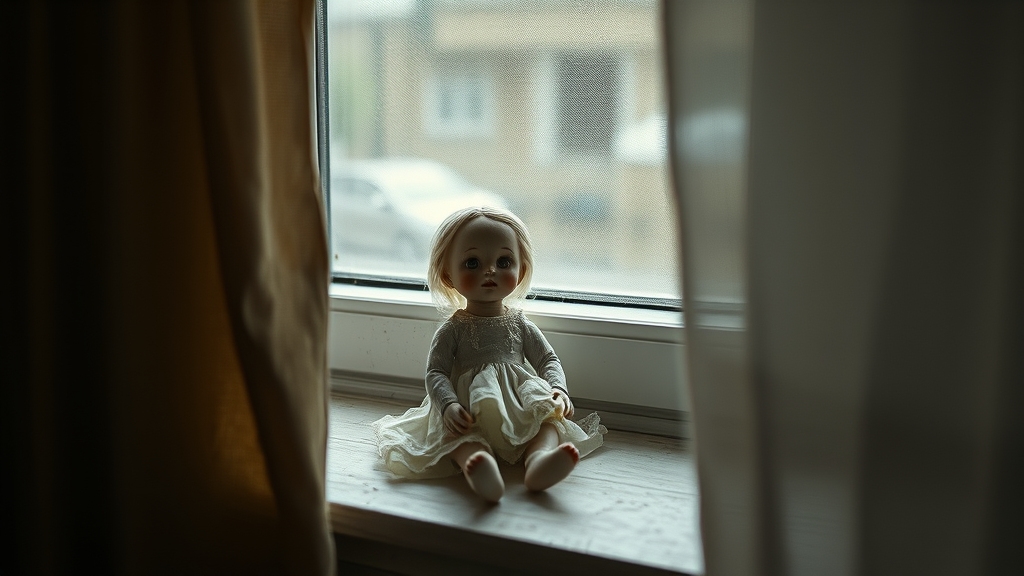Your childhood wounds play a big role in shaping your attachment style, which in turn fuels adult love addictions and obsessive behaviors. When caregivers were inconsistent or emotionally unavailable, you may develop anxious or avoidant attachment patterns that make you seek validation and struggle with intimacy. These early experiences create emotional dependencies that surface as obsession or clinginess in adult relationships. By understanding how your past influences your patterns, you can start to break free from these cycles. Continue exploring to learn how healing your childhood wounds can transform your love life.
Key Takeaways
- Childhood neglect or inconsistency can lead to anxious or avoidant attachment, fueling adult love obsession and dependency.
- Early emotional wounds reinforce obsessive thoughts and compulsive behaviors around seeking love and validation.
- Insecure attachment styles cause fear of abandonment, prompting clinginess and obsessive reassurance-seeking in relationships.
- Childhood experiences influence emotional dependency, making individuals prone to unhealthy love patterns and difficulty setting boundaries.
- Recognizing childhood wounds helps explain persistent love addiction and supports healing through awareness and healthier attachment practices.

Understanding your attachment style can reveal why you might be prone to love addiction. Often, the roots lie deep within your early experiences with caregivers and the parent-child dynamics you grew up with. These interactions shape how you view intimacy, trust, and your own worth, influencing how you seek connection as an adult. If you notice yourself becoming emotionally dependent on partners or obsessively chasing love, it’s worth examining how your childhood shaped these tendencies.
Early childhood experiences shape attachment styles, influencing emotional dependence and patterns of love addiction.
In many cases, love addiction stems from unresolved issues around emotional dependency. When your early environment was unpredictable or emotionally lacking, you might have learned to cling to relationships as a way to fill that void. For example, if your parents were inconsistent—sometimes attentive, other times distant—you may have developed an anxious attachment style. This style often manifests as a constant need for reassurance and fears of abandonment, driving you to cling to partners even when it’s unhealthy. You might find yourself obsessively checking in, seeking constant validation, or feeling anxious when your partner is unavailable. These behaviors are attempts to soothe underlying insecurities rooted in childhood.
Your parent-child dynamics play a critical role here. If your caregivers were emotionally unavailable or overly controlling, you might have developed an avoidant attachment style, which can also fuel love addiction. In this case, you might struggle with intimacy, yet still crave connection to feel secure. This push-pull dynamic creates a cycle where you seek closeness but push it away when it feels overwhelming, leading to obsessive thoughts about love and commitment. These patterns often get reinforced over time, making it difficult to establish healthy boundaries or trust yourself in relationships.
Furthermore, understanding Cultural Intelligence (CQ) can provide insight into how cultural influences shape attachment behaviors and emotional responses, helping you develop healthier relationship patterns. Recognizing how childhood wounds influence attachment styles can also shed light on why certain patterns persist despite efforts to change. The emotional dependency that develops from these early experiences often makes you feel as though your happiness hinges on your partner’s affection. You might find yourself sacrificing your needs, suppressing your feelings, or staying in toxic relationships because the idea of being alone feels more terrifying than enduring pain. This dependency becomes a cycle—you seek love to feel complete, but that love becomes a source of anxiety and obsession. Recognizing how childhood wounds influence your attachment style can help you understand why you’re prone to these compulsive patterns.
Additionally, cultivating emotional awareness can help you identify triggers and patterns that contribute to love addiction, empowering you to make conscious relationship choices.
Frequently Asked Questions
Can Childhood Wounds Be Fully Healed Through Therapy?
Childhood wounds can often be healed through therapy, but it’s a journey that depends on your effort and emotional resilience. Parenting impacts play a key role, helping you understand and reframe past experiences. While some wounds may leave lasting impressions, therapy helps you process pain and develop healthier patterns. Full healing is possible, but it requires patience, commitment, and a willingness to confront deep-seated emotions.
How Do Attachment Styles Evolve Over a Lifetime?
Imagine your attachment styles are like a river, constantly shifting and reshaping over your lifetime. Through experiences and therapy, you can dramatically influence your attachment evolution, building incredible emotional resilience. You might find your patterns changing from anxious to secure, or avoidant to trusting, as you learn more about yourself. Your emotional landscape is flexible, and with effort, you can steer it toward healthier, more fulfilling connections across your life.
Are There Specific Signs Indicating Love Addiction?
If you’re wondering about signs of love addiction, look for codependency patterns and emotional dependency. You might feel anxious when apart from your partner, prioritize their needs over yours, and struggle with boundaries. You could also find yourself chasing validation constantly and feeling empty without a relationship. Recognizing these signs helps you understand how emotional dependency fuels your obsession with love, often rooted in childhood wounds.
What Role Do Genetics Play in Attachment and Love Addiction?
You might think genetics are just a roll of the dice, but they actually play a significant role. Your genetic predispositions and biological influences can shape how you connect with others, potentially increasing susceptibility to attachment issues and love addiction. While environment matters, understanding that genetics contribute helps you see that some tendencies are rooted in biology, making it easier to address and work through these challenges with awareness and support.
Can Love Addiction Occur Without Childhood Trauma?
Love addiction can happen even if you didn’t experience childhood trauma. You might develop attachment avoidance or emotional dependency from other life experiences or personality traits. These patterns can cause you to seek constant validation or fear abandonment, fueling obsession. While childhood wounds often influence this, it’s possible to develop love addiction through current relationship dynamics or unmet emotional needs, regardless of your past.
Conclusion
Understanding your attachment style and childhood wounds can be eye-opening, but it doesn’t mean you’re doomed to a cycle of love addiction. Recognizing these patterns empowers you to seek healing and healthier relationships. Some might worry it’s too late or too complicated, but transformation is always possible with self-awareness and support. By confronting your past, you take an essential step toward breaking free from obsessions and cultivating genuine, secure love—because your emotional well-being is worth it.









